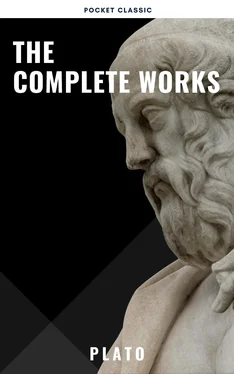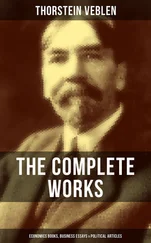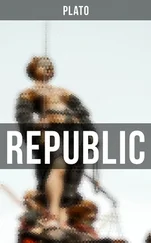LACHES: Very true.
SOCRATES: Now I was asking about courage and cowardice in general. And I will begin with courage, and once more ask, What is that common quality, which is the same in all these cases, and which is called courage? Do you now understand what I mean?
LACHES: Not over well.
SOCRATES: I mean this: As I might ask what is that quality which is called quickness, and which is found in running, in playing the lyre, in speaking, in learning, and in many other similar actions, or rather which we possess in nearly every action that is worth mentioning of arms, legs, mouth, voice, mind;—would you not apply the term quickness to all of them?
LACHES: Quite true.
SOCRATES: And suppose I were to be asked by some one: What is that common quality, Socrates, which, in all these uses of the word, you call quickness? I should say the quality which accomplishes much in a little time—whether in running, speaking, or in any other sort of action.
LACHES: You would be quite correct.
SOCRATES: And now, Laches, do you try and tell me in like manner, What is that common quality which is called courage, and which includes all the various uses of the term when applied both to pleasure and pain, and in all the cases to which I was just now referring?
LACHES: I should say that courage is a sort of endurance of the soul, if I am to speak of the universal nature which pervades them all.
SOCRATES: But that is what we must do if we are to answer the question. And yet I cannot say that every kind of endurance is, in my opinion, to be deemed courage. Hear my reason: I am sure, Laches, that you would consider courage to be a very noble quality.
LACHES: Most noble, certainly.
SOCRATES: And you would say that a wise endurance is also good and noble?
LACHES: Very noble.
SOCRATES: But what would you say of a foolish endurance? Is not that, on the other hand, to be regarded as evil and hurtful?
LACHES: True.
SOCRATES: And is anything noble which is evil and hurtful?
LACHES: I ought not to say that, Socrates.
SOCRATES: Then you would not admit that sort of endurance to be courage— for it is not noble, but courage is noble?
LACHES: You are right.
SOCRATES: Then, according to you, only the wise endurance is courage?
LACHES: True.
SOCRATES: But as to the epithet ‘wise,’—wise in what? In all things small as well as great? For example, if a man shows the quality of endurance in spending his money wisely, knowing that by spending he will acquire more in the end, do you call him courageous?
LACHES: Assuredly not.
SOCRATES: Or, for example, if a man is a physician, and his son, or some patient of his, has inflammation of the lungs, and begs that he may be allowed to eat or drink something, and the other is firm and refuses; is that courage?
LACHES: No; that is not courage at all, any more than the last.
SOCRATES: Again, take the case of one who endures in war, and is willing to fight, and wisely calculates and knows that others will help him, and that there will be fewer and inferior men against him than there are with him; and suppose that he has also advantages of position; would you say of such a one who endures with all this wisdom and preparation, that he, or some man in the opposing army who is in the opposite circumstances to these and yet endures and remains at his post, is the braver?
LACHES: I should say that the latter, Socrates, was the braver.
SOCRATES: But, surely, this is a foolish endurance in comparison with the other?
LACHES: That is true.
SOCRATES: Then you would say that he who in an engagement of cavalry endures, having the knowledge of horsemanship, is not so courageous as he who endures, having no such knowledge?
LACHES: So I should say.
SOCRATES: And he who endures, having a knowledge of the use of the sling, or the bow, or of any other art, is not so courageous as he who endures, not having such a knowledge?
LACHES: True.
SOCRATES: And he who descends into a well, and dives, and holds out in this or any similar action, having no knowledge of diving, or the like, is, as you would say, more courageous than those who have this knowledge?
LACHES: Why, Socrates, what else can a man say?
SOCRATES: Nothing, if that be what he thinks.
LACHES: But that is what I do think.
SOCRATES: And yet men who thus run risks and endure are foolish, Laches, in comparison of those who do the same things, having the skill to do them.
LACHES: That is true.
SOCRATES: But foolish boldness and endurance appeared before to be base and hurtful to us.
LACHES: Quite true.
SOCRATES: Whereas courage was acknowledged to be a noble quality.
LACHES: True.
SOCRATES: And now on the contrary we are saying that the foolish endurance, which was before held in dishonour, is courage.
LACHES: Very true.
SOCRATES: And are we right in saying so?
LACHES: Indeed, Socrates, I am sure that we are not right.
SOCRATES: Then according to your statement, you and I, Laches, are not attuned to the Dorian mode, which is a harmony of words and deeds; for our deeds are not in accordance with our words. Any one would say that we had courage who saw us in action, but not, I imagine, he who heard us talking about courage just now.
LACHES: That is most true.
SOCRATES: And is this condition of ours satisfactory?
LACHES: Quite the reverse.
SOCRATES: Suppose, however, that we admit the principle of which we are speaking to a certain extent.
LACHES: To what extent and what principle do you mean?
SOCRATES: The principle of endurance. We too must endure and persevere in the enquiry, and then courage will not laugh at our faint-heartedness in searching for courage; which after all may, very likely, be endurance.
LACHES: I am ready to go on, Socrates; and yet I am unused to investigations of this sort. But the spirit of controversy has been aroused in me by what has been said; and I am really grieved at being thus unable to express my meaning. For I fancy that I do know the nature of courage; but, somehow or other, she has slipped away from me, and I cannot get hold of her and tell her nature.
SOCRATES: But, my dear friend, should not the good sportsman follow the track, and not be lazy?
LACHES: Certainly, he should.
SOCRATES: And shall we invite Nicias to join us? he may be better at the sport than we are. What do you say?
LACHES: I should like that.
SOCRATES: Come then, Nicias, and do what you can to help your friends, who are tossing on the waves of argument, and at the last gasp: you see our extremity, and may save us and also settle your own opinion, if you will tell us what you think about courage.
NICIAS: I have been thinking, Socrates, that you and Laches are not defining courage in the right way; for you have forgotten an excellent saying which I have heard from your own lips.
SOCRATES: What is it, Nicias?
NICIAS: I have often heard you say that ‘Every man is good in that in which he is wise, and bad in that in which he is unwise.’
SOCRATES: That is certainly true, Nicias.
NICIAS: And therefore if the brave man is good, he is also wise.
SOCRATES: Do you hear him, Laches?
LACHES: Yes, I hear him, but I do not very well understand him.
SOCRATES: I think that I understand him; and he appears to me to mean that courage is a sort of wisdom.
LACHES: What can he possibly mean, Socrates?
SOCRATES: That is a question which you must ask of himself.
LACHES: Yes.
SOCRATES: Tell him then, Nicias, what you mean by this wisdom; for you surely do not mean the wisdom which plays the flute?
NICIAS: Certainly not.
SOCRATES: Nor the wisdom which plays the lyre?
NICIAS: No.
SOCRATES: But what is this knowledge then, and of what?
Читать дальше












